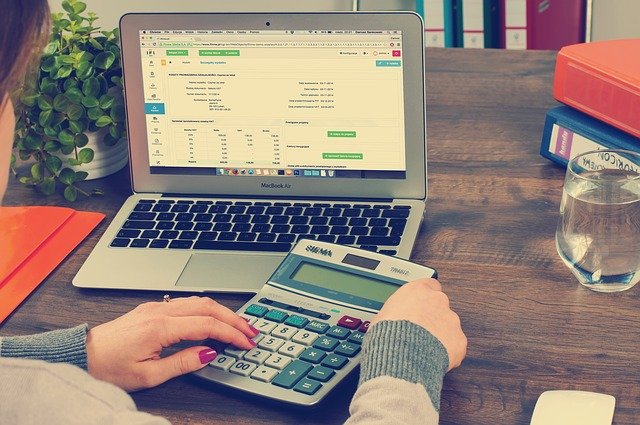Bitcoin has been in the news a lot in recent months. From rocketing prices driven by high profile investors to sudden drops following discussions about closer regulatory oversight, Bitcoin has attracted a lot of attention in its relatively short life.
You may have found your way to this blog as an investor in Bitcoin, as someone trying to find out if it counts as an expense, or simply wondering what all the fuss is about!
If you are unfamiliar with the intricacies of cryptocurrency then it can seem a complicated subject, but we will do our best to cut through the jargon and take the stress out of accounting.
In this article we will discuss what Bitcoin is, how HMRC treats Bitcoin and other cryptocurrencies, and any tax you may have to pay on an investment.
Can I count Bitcoin as an expense on my Self Assessment?
The simple answer to this question is no, Bitcoin does not count as an expense on your Self Assessment. There are lots of allowable expenses such as travel, staff or clothing costs, that you might be entitled to claim, but this is not how Bitcoin is treated.
Bitcoin, and other cryptocurrencies, is treated in the same way as trading stocks and shares. There is no tax placed on purchasing or holding Bitcoin, but it is subject to Capital Gains Tax when you make a disposal (a sale, exchange or gift).
If you are wondering how to work out if you owe tax, or what your responsibilities are for reporting it, then you are in the right place. We will cover how to calculate your gains, how to pay any tax owed, and how to minimise your potential tax bill. But first, let’s focus on what Bitcoin actually is.
What is Bitcoin?
Bitcoin is a cryptocurrency – a digital or virtual currency that can be traded or stored electronically. There are thousands of cryptocurrencies in existence but Bitcoin is by far the most valuable and most popular. The total market capital of all cryptocurrency is over £1 trillion with Bitcoin making up over half of that figure.
Cryptocurrencies have no intrinsic value; instead the value is based on the supply and demand and scarcity of assets. In effect, the value is defined by what another person is prepared to pay for it.
Bitcoin is a decentralised currency, which means it operates without oversight from central banks. Transactions are carried over a network, with records recorded in a digital ledger called a blockchain.
This lack of need for a bank or third party to be able to transfer money is one of the advantages of owning Bitcoin. You can buy or sell tokens (cryptocurrency) via exchanges or peer-to-peer, with transfers incurring minimal fees. This process also makes it very secure, with tokens stored in electronic wallets to which the owner accesses via a private key known only to them.
In the last few years especially, Bitcoin and other cryptocurrencies have been extremely attractive to individuals as a source of investment. Whilst their values have soared from a decade ago, prices can, and do, fluctuate wildly. News recently of regulators looking to crackdown on the use of digital currency has resulted in cryptocurrencies plummeting by over a quarter of their price
How does HMRC treat cryptocurrency?
HMRC does not place any tax on buying or holding cryptocurrency, but you may be liable to pay tax when you dispose of an asset. A disposal is defined as selling assets for money, exchanging one type of cryptocurrency for another, using cryptocurrency to pay for goods or services, or gifting it to another individual.
HMRC treats gains on Bitcoin and other cryptocurrencies in the same way as gains on other investments, such as as trading stocks and shares, or buying and selling artwork. Profits are subject to Capital Gains Tax (CGT), which you will need to pay if the gains exceed your CGT allowance.
The CGT allowance for 2021/22 is £12,300 and you will only need to pay tax if you exceed this amount.
For example if you purchase £3,000 worth of bitcoin and sell it for £9,000, your profit is £6,000, so you would not be liable to pay CGT.
£12,300 (CGT allowance) – £6,000 (value of gains from sale) = £6,300 left of your CGT allowance still to use.
It is important to note that cryptocurrencies are just one transaction that could make up your Capital gains Tax for the year. If you buy and sell stocks and shares as well as Bitcoin or if you sell a property or other valuable possessions then you will need to calculate the gains to see if you are still within your allowance or if you need to pay tax.
If you frequently trade in cryptocurrency then you may need to pay other tax, as well as CGT. To understand if this applies to you, HMRC defines this level of trading as:
Only in exceptional circumstances would HMRC expect individuals to buy and sell crypto assets with such frequency, level of organisation and sophistication that the activity amounts to a financial trade in itself.
Effectively, you would need to be trading at a financial level or carrying this out as a business for this to apply. If you think this does apply to you then you can refer to HMRC’s Cryptoassets Manual and read the guidelines on Income Tax, Corporation Tax, Stamp Duty and VAT.
How to work out if I need to pay Capital Gains Tax?
We’ll be honest with you, working out the gains on cryptocurrency can be a complicated process. To check if you need to pay Capital Gains Tax, you need to calculate your gain on each transaction that you make.
A capital gain is the difference between the value of the asset when it is disposed and the value of the disposed asset at the time it was acquired. Essentially, you need to calculate how much you made when you sold the asset minus how much you paid for it.
The selling price is the easiest part to work out as the latest prices are ready available, but it can be difficult finding the purchase price of Bitcoin you have held for several years. Refer to the section on ‘record keeping’ further down to see how maintaining a complete record of transactions can really help when it comes to working out your Capital Gains Tax.
It’s also not just as simple as grabbing your calculator and subtracting the purchase value from the sale value. HMRC uses share pool accounting when calculating coin disposition, so you need to ensure that the currency you are selling relates to the same currency you have recorded the purchase against.
The following order applies when disposing of cryptocurrency:
- Same day Rule: assets acquired on the same day as the disposal are used first.
- Bed and Breakfasting Rule: assets acquired within 30 days following the disposal.
- Crypto-pool: All assets purchased prior to the above. The average price is used when calculating disposal.
What this means is that if you have Bitcoins you are selling, and you purchased them over several months, you will need to calculate the values based on the above order. This is in order to prevent investors disposing of an asset for a low price and buying it back soon after to minimise their capital gains.
When calculating your CGT, here are a few things that you should take into account:
Capital Gains Tax losses
When working out your CGT gain be aware that you can claim capital losses and use them to offset any potential gains in the current tax year or future tax years (within 4 years of the tax year the loss was realised). This is similar to how you would use losses on stocks and shares to offset gains realised from sales.
Allowable costs
When working out your gains you should be aware that there are certain allowable costs that you are able to deduct. These include any advertising fees when looking for a buyer or seller, transaction fees paid before the transaction was added to the digital ledger (blockchain), and making or paying for a valuation so you can calculate the gain on a transaction.
Gifting Bitcoin
If you are thinking of gifting Bitcoin to a friend or a relative then be aware that if you gift it to anyone other than you spouse or civil partner, it will be classed as as a disposal and you will need to calculate the disposal value as the date of the gift.
Do I need to report my gains?
Yes! If you think that you don’t have to pay your taxes on trading Bitcoin, then think again. HMRC have allocated a lot of resources to cracking down on individuals and business who don’t accurately report their capital gains from trading cryptocurrency. HMRC can request and be provided with information on customers by cryptocurrency exchanges.
What do I have to pay?
Quite simply, if you haven’t exceeded your CGT allowance then you don’t have to pay tax. Although, you will still need to report your gains if you are registered for Self Assessment and the amount you sold the Bitcoin for was worth at least four times more than your allowance (£49,200).
If you do exceed your allowance then what you pay depends on which tax bracket you are in.
Higher rate tax payer
If you are higher rate taxpayer (earning between £50,270 and £150,000) or an additional rate tax payer (earning over £150,000), you will pay 20% tax on your gains.
For example: You purchase £5,000 worth of Bitcoin and sell it for £15,000. Then you purchase more bitcoin for £10,000 and sell it for £25,000. You calculate this as:
£25,000 (gain on purchases vs sales) – £12,300 (allowance) = £12,700
The tax you pay is calculated as 20% of £12,700 = £2,540
Basic rate taxpayer
If you are a basic rate taxpayer (earning less than £50,270), the tax you pay depends on your taxable income and the size of your gain. Your taxable income is your income minus your Personal Allowance (£12,570) and any other Income Tax Relief, such as pension contributions or charity donations.
If your taxable income and capital gain are below £37,700, then you will pay a tax rate of 10%. If it exceeds £37,700, you’ll pay 10% on the value up to the threshold, and 20% on the rest.
As an example, your taxable income is £25,000 and your taxable gains are £14,000. After deducting your CGT allowance of £12,300, you are left with an amount of £1,700. When added to your taxable income it gives you a figure of £26,700, which is below the threshold of £37,700.
Therefore, the amount of tax you pay will be 10% of £1,700 = £170
How do I pay?
If you have done your sums and worked out that you need to pay Capital Gains Tax, then you can either complete a Self Assessment tax return or use the ‘real time’ Capital Gains Tax service.
The current tax year runs from 6 April 2021 to 5 April 2022, and you need to report any gains by 31 December in the tax year after you made the gain.
Reporting and record keeping
HMRC specify that you should keep records of every transaction you make, including the date of purchase, date of disposal, type of currency, value, and record of the pooled costs. If they need to check any of the information you have filed in your Self Assessment, then they can request access to the records.
As we’ve already discussed, calculating the gains on cryptocurrency can be a complicated and time consuming process. For your own benefit, it’s worth having as much information to hand as possible when it comes to working out these calculations.
I have been paid in Bitcoin. What does this mean?
If you are an employee and you have been paid in Bitcoin this counts as earnings, so Income Tax and National Insurance will apply. Although, as an employee, this would be calculated and paid by your employer.
If you are self-employed and you have been paid for your services in Bitcoin then the responsibility lies with you to report it on your Self Assessment.
How to minimise your Capital Gains Tax
The best way to minimise your capital gains is to make use of your CGT allowance. The allowance for 2021/22 is £12,300 so if you don’t want to pay CGT you should work out your gains in the tax year and plan your disposals carefully.
Gifts to your spouse or civil partner are non-taxable, which allows you to potentially double your CGT allowance (£24,600 for this tax year). Finally, make use of any losses to offset potential gains.
Summary
Bitcoin, like all investments, comes with a degree of risk. The volatility of the cryptocurrency market places it at the high end of the risk spectrum, but it also has the potential for high reward. Just remember that like any investment, the profit you make can be subject to tax.





 Bitcoin
Bitcoin  Ethereum
Ethereum  Tether
Tether  XRP
XRP  Solana
Solana  USDC
USDC  Cardano
Cardano  TRON
TRON  Lido Staked Ether
Lido Staked Ether  Avalanche
Avalanche  Toncoin
Toncoin